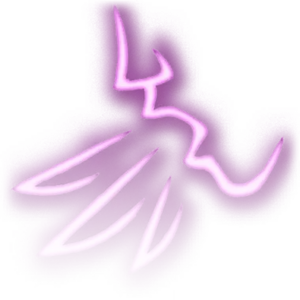Cutting Words: Difference between revisions
Jump to navigation
Jump to search
m (remove the possibly confusing plus signs) |
(Remove up-to-date template.) |
||
| (16 intermediate revisions by 9 users not shown) | |||
| Line 1: | Line 1: | ||
{{ActionPage | |||
| image = Cutting Words.webp | |||
'''Cutting Words''' is a | | summary = '''Cutting Words''' is a Reaction available to the {{Class|College of Lore}}s. This ability allows these Bards to distract and confuse their foes, potentially causing attacks to miss, or ability checks or saving throws to fail. | ||
| description = Use your wit to distract a creature and sap its confidence. It receives a {{InfoBlob|{{DieIcon|d6|Physical}}-1d6}} penalty to {{Attack Roll}}, {{Ability Check}}, or {{Saving Throw}}. | |||
| cost = reaction, bardin | |||
Use your wit to distract a creature and sap its confidence. It receives a {{ | | range m = 18 | ||
| range ft = 60 | |||
| higher levels = * At [[Bard]] Level 5, the '''Cutting Words''' penalty increases to {{InfoBlob|{{DieIcon|d8|Physical}}-1d8}} | |||
{{ | * At [[Bard]] Level 10, the '''Cutting Words''' penalty increases to {{InfoBlob|{{DieIcon|d10|Physical}}-1d10}} | ||
| additional = | |||
| class learns at level 3 = College of Lore | |||
| notes = * Unlike in D&D 5th Edition Rules, Cutting Words cannot be applied to damage rolls. However, it can be applied to Saving Throws (which is normally available only to Eloquence Bards). | |||
* In most cases using this action will cause the caster to make a verbal quip or insult the target, drawing on the same pool of dialogue options as {{SAI|Vicious Mockery}}. These remarks are fully voice acted, including for characters who don't normally have access to the action. | |||
}} | |||
{{BardNavbox}} | |||
* At [[Bard]] Level 5, the '''Cutting Words''' penalty increases to {{ | |||
* At [[Bard]] Level 10, the '''Cutting Words''' penalty increases to {{ | |||
== | |||
* | |||
Latest revision as of 16:29, 9 March 2024
Cutting Words is a Reaction available to the College of Lore Bards. This ability allows these Bards to distract and confuse their foes, potentially causing attacks to miss, or ability checks or saving throws to fail.
Description
Use your wit to distract a creature and sap its confidence. It receives a ![]() -1d6 penalty to
-1d6 penalty to ![]() Attack roll,
Attack roll, ![]() Ability check, or
Ability check, or ![]() Saving throw.
Saving throw.
Properties
- Cost:
-
 Reaction +
Reaction +  Bardic Inspiration Charge
Bardic Inspiration Charge - Details:
-
 Range: 18 m / 60 ft
Range: 18 m / 60 ft
At Higher Levels
How to learn
Classes:
- Class level 3: College of Lore Bard
Notes
- Unlike in D&D 5th Edition Rules, Cutting Words cannot be applied to damage rolls. However, it can be applied to Saving Throws (which is normally available only to Eloquence Bards).
- In most cases using this action will cause the caster to make a verbal quip or insult the target, drawing on the same pool of dialogue options as . These remarks are fully voice acted, including for characters who don't normally have access to the action.
